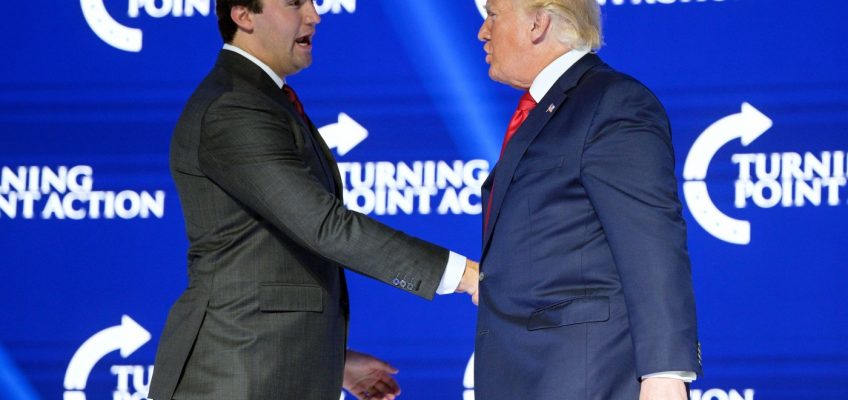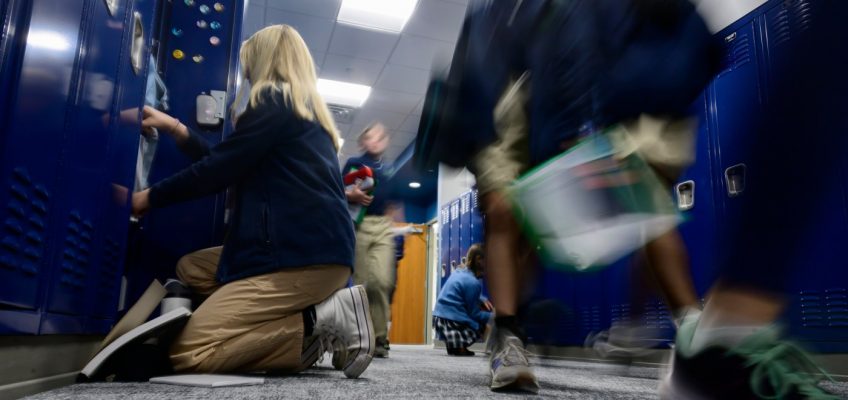God help us.
On Wednesday, I watched some of the worst footage I’ve seen in my life. An assassin’s bullet cut down Charlie Kirk, one of the nation’s most prominent conservative activists and commentators, at a public event on the campus of Utah Valley University.
Kirk was a husband and the father of two small children. He was also a hero to countless conservative college students. And now he’s gone.
Kirk might have been the most successful conservative political personality in America not named Donald Trump. He helped found Turning Point USA in 2012 and built it into the most influential conservative youth organization in the United States.
And that was only one part of Kirk’s empire. He put together a vast get-out-the-vote operation for the 2024 election. He hosted a popular podcast. But to simply recite a list of his accomplishments is to understate the impact of his life and of his death.
As Emily Jashinsky, a Washington correspondent for Unherd, put it on social platform X: “Charlie Kirk is a fixture of the Gen Z social media diet. People feel like they know him. This will hit very, very close to home in ways we are not prepared for.”
That is exactly right. When an assassin shot Kirk, that person killed a man countless students felt like they knew, and the assassin killed him on a college campus. Many students will take this loss personally. Many others will now feel a sense of dread on their own campuses.
Who can feel safe? Where can they feel safe? Whatever you think of Kirk (I had many disagreements with him, and he with me), when he died he was doing exactly what we ask people to do on campus: Show up. Debate. Talk. Engage peacefully, even when emotions run high.
In fact, that’s how he made his name, in debate after debate on campus after campus.
One of the worst elements of modern political discourse is that we tend to learn about our opponents entirely through the words and actions we find offensive. We’re subjected to a constant barrage of posts that begin with words like, “Can you believe Charlie Kirk said this?” or “Did you see this nonsense?” and then point to the clips or quotes that make us the angriest.
We don’t ever see the points of agreement. We rarely see the person outside his political context. Post by post, our hearts harden until some people reach a point where they will celebrate the deaths of people they’ve grown to despise.
Just a few days ago, I watched gutting footage of Kirk’s daughter running up to hug him when he was on the set of Fox News. Kirk wasn’t just an avatar for a political point of view; he was a person whom many, many people loved. If politics prevents us from mourning a wife’s loss of a husband or two kids’ loss of a father, then we are lost.
When I speak on college campuses, I’m often asked what single thing worries me most about American politics and culture. I have an easy answer — it’s hatred. Even vast political differences can be managed when people acknowledge the humanity and dignity of their opponents. At the same time, however, small conflicts can spiral into big ones when hatred and vengeance take away our eyes and ears.
Every threat, every assault, every shooting, every murder — and certainly every political assassination — builds the momentum of hate and fear.
You can look at the history of American conflict and unrest and see the same pattern time and again. What starts as a political difference becomes a blood feud the instant someone is hurt or killed. And so each act of political violence has a double consequence. It shatters families, and — over time — it breaks nations.
Already we’re seeing calls for vengeance online. In post after post, Kirk’s grieving friends and allies are declaring that “we’re at war” and “THIS IS WAR.”
Assassination can cost us our country. We lose it when we stop seeing our opponents as human, when we crave vengeance more than peace, when the motivation for our political engagement stops being the common good of our constitutional Republic (or even just the security of our families), but is rather inflicting pain and anguish on our political enemies.
I only met Kirk once, in 2021. We were speaking at the same Christian conference, and a mutual acquaintance introduced us. We’d already had some disagreements, so I was curious about how he’d respond when we met. He was perfectly civil, even friendly and self-deprecating. We talked a bit about our families, talked through a few points of disagreement and discussed the possibility of debating our differences on campus someday.
That’s one thing I respected about Charlie — and it’s worth emphasizing because the assassin attacked him as he spoke on campus — he wasn’t afraid of a debate. He was willing to talk to anyone. And when he was shot in the middle of a debate, the assassin didn’t just take aim at a precious human being, created in the image of God, he took aim at the American experiment itself.
Related Articles
Thomas Friedman: A plea for President Trump with a fragile country on the edge
Brendan Harley: The health of our society depends on students equipped to embrace uncertainty
Andreas Kluth: What the White House doesn’t get about ‘war’
Alexandra Vacroux: Russia wants what it cannot have
David M. Drucker: Government shutdowns never help the instigators
I’m reminded of the famous closing words of Abraham Lincoln’s first Inaugural Address. With a national calamity looming, he ended with a plea that subtly captured the danger ahead: “I am loath to close. We are not enemies, but friends. We must not be enemies. Though passion may have strained it must not break our bonds of affection.”
The Confederacy rejected Lincoln’s appeal, but our generation faces its own choice. We have to work through our deep divide, recover our decency. The ballot box exists. Free speech exists. The gun cannot rule the day.
David French writes a column for the New York Times.




